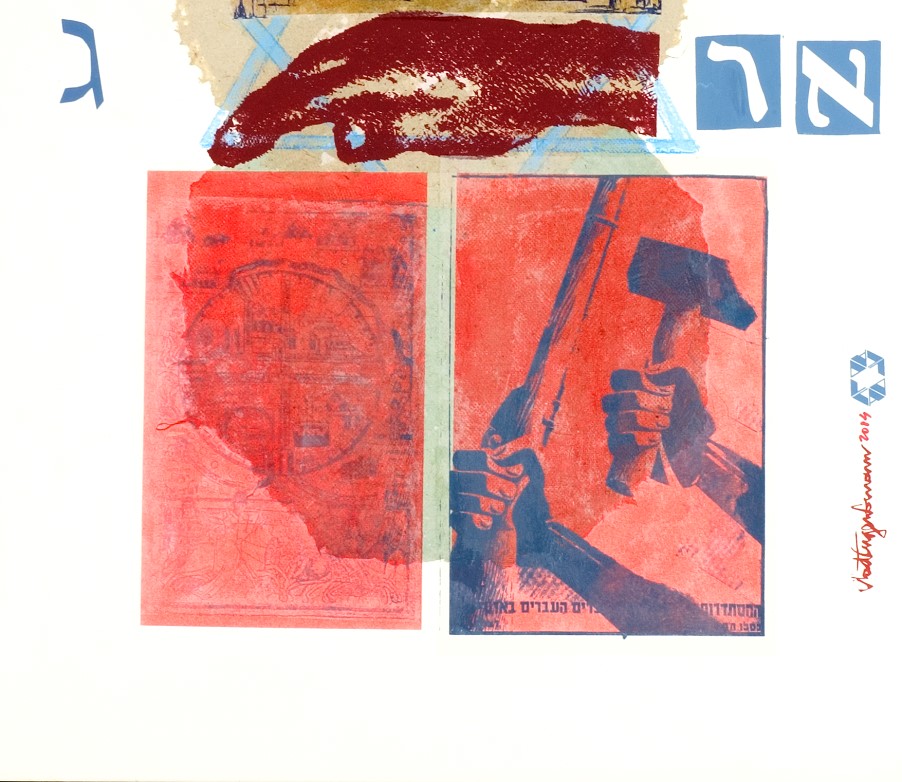Der volf
a Yiddish Song Cycle
DOI:
https://doi.org/10.35699/1982-3053.2022.41874Keywords:
Yiddish, Songs, Der VolfAbstract
On the basis of an inquiry into the relationship between monstrosities and Jewishness, I have begun to adapt the narrative poem "Der Volf" (The Wolf) written by H. Leivik in 1920, with the aim of creating a cycle of Yiddish songs entitled in the same way. So far, I composed, performed and recorded the first two songs: "Ash un koyl un mer gornisht" (Ash(es), coal(es) and nothing else) and "In vald arayn" (Into the forest). In this article, I show and analyze the relationship between the figure of the werewolf, Yiddish and the music composed from the perspective of an artist-researcher.
Downloads
References
GELLER, Jay. Der Volf’ or The Jew as Out(side of the)law. En: IDELSON-SHEIN, Iris; WIESE, Christian (org.). Monsters and Monstrosity in Jewish History. From the Middle Ages to Modernity. Gran Bretania: Bloomsbury Academic, 2019. p. 251-264.
GELLER, Jay. Dogged by Destiny. Lupus est homo homini, non homo, quom quails sit non navit. En: GELLER, Jay. Bestiarium Judaicum: Unnatural Histories of the Jews. Nueva York: Fordham University Press, 2018. p. 188-220.
GLOCER, Silvia. Clase n. 4 perteneciente al módulo n. 4: Melodías del destierro. Música y judeidad en los escenarios argentinos (1930-1950). Capacitación Universitaria Extracurricular en Prácticas y Poéticas de la Judeidad argentina, Facultad de Filosofía y Letras, Universidad de Buenos Aires, 2020.
GOTTESMAN, Itzik. Folksong, Demons, and the Evil Eye: Folklore of Ashkenaz. En YIVO’s Shine Online Educational Series, 2017. Disponible en: https://yivo.org/Folklore-of-Ashkenaz. Acceso en: 3 mayo 2020.
GROS, Alexis Emanuel. El Yo no es amo en su propia casa: una revisita sistemática de la teoría de la subjetividad de Sigmund Freud. Eidos: Revista de Filosofía de la Universidad del Norte [en linea], n. 26, p. 74-104, 2017. Disponible en: https://www.redalyc.org/articulo.oa?id=85448897004. Acceso en: 13 nov. 2020.
HARSHAV, Benjamin & Barbara. H. Leyvik. En: American Yiddish poetry. California: University of California Press, 1986, p. 675-769.
IDELSON-SHEIN, Iris. Introduction: Writing a History of Horror, or What Happens When Monsters Stare Back. En: IDELSON-SHEIN, Iris; WIESE, Christian (org.). Monsters and Monstrosity in Jewish History. From the Middle Ages to Modernity. Gran Bretania: Bloomsbury Academic, 2019. p 1-18.
LEMBKE, Astrid. The Raging Rabbi: Aggression and Agency in an Early Modern Yiddish Werewolf Tale (Mayse-bukh 1602). En: IDELSON-SHEIN, Iris; WIESE, Christian (org.). Monsters and Monstrosity in Jewish History. From the Middle Ages to Modernity. Gran Bretania: Bloomsbury Academic, 2019. p 201-212.
ROSKIES, David. The Pogrom Poem and the Literature of Destruction. Notre Dame English Journal. The University of Notre Dame, v. 11, n. 2, p. 89-113. Abril 1979.
SHANDLER, Jeffrey. Founded in translation. En: SHANDLER, Jeffrey. Adventures in Yiddishland: postvernacular language and culture. California: California University Press, 2005.
SKURA, Susana. Introducción: Yiddish en Argentina: mame-loshn, lengua muerta, lengua minorizada. En: SKURA, Susana (org.). Reflexiones sobre el Yiddish. Buenos Aires: Sholem Buenos Aires, 2012, p. 9-25.
TOKER, Eliahu. H. Leivik. En: The International Raoul Wallenberg Foundation. Disponible en: https://www.raoulwallenberg.net/wp-content/files_mf/6620.pdf> Acceso en: 20 nov. 2020.
TUSZEWICKI, Marek. Demonology at the Crossroads. The Presence and Significance. Scripta Judaica Cracoviensia. v. 13, n., p. 93-112, 2015. Disponible en: www.ejournals.eu/Scripta-Judaica-Cracoviensia. Acceso en: 27 jul. 2022.
Downloads
Published
Issue
Section
License
Copyright (c) 2022 Arquivo Maaravi: Revista Digital de Estudos Judaicos da UFMG

This work is licensed under a Creative Commons Attribution 4.0 International License.
Os direitos autorais pertencem exclusivamente aos autores. Os direitos de licenciamento utilizados pelo periódico é a licença Creative Commons Attribution 4.0 (CC BY 4.0): são permitidos o compartilhamento (cópia e distribuição do material em qualquer meio ou formato) e adaptação (remix, transformação e criação de material a partir do conteúdo assim licenciado para quaisquer fins, inclusive comerciais.






